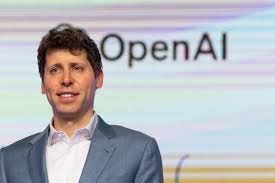
OpenAI, the company behind ChatGPT, is planning to restructure its core business into a for-profit benefit corporation, shifting away from the control of its non-profit board, according to sources familiar with the matter. This move is seen as a way to make OpenAI more attractive to investors while still preserving its mission-driven goals. The OpenAI non-profit will continue to exist and hold a minority stake in the for-profit entity, but the restructuring could have implications for how the company manages AI risks under a new governance model.
CEO Sam Altman will, for the first time, receive equity in the for-profit company, which could be valued at $150 billion after the restructuring. OpenAI is also working to lift the cap on investor returns, making the company more financially appealing to potential backers. OpenAI, founded as a non-profit in 2015, introduced a for-profit subsidiary in 2019 to secure funding for its ambitious AI research, notably through partnerships with companies like Microsoft.
The proposed changes come amid leadership shifts, with CTO Mira Murati departing abruptly and President Greg Brockman currently on leave. These governance and leadership transitions coincide with OpenAI’s meteoric rise following the 2022 launch of ChatGPT, which has rapidly gained over 200 million weekly active users and positioned the company as a global leader in AI.
OpenAI’s unique structure, which originally gave full control of its for-profit subsidiary to the non-profit, was designed to safeguard its mission to develop “safe AGI” (artificial general intelligence) that benefits society. However, last year’s boardroom drama, which briefly saw Sam Altman ousted before his reinstatement, highlighted internal governance tensions. The company’s board has since been revamped, led by Bret Taylor, former Salesforce co-CEO.
While removing non-profit control may streamline OpenAI’s operations and please investors, it raises concerns within the AI safety community about maintaining accountability in the development of AGI, especially after the dissolution of OpenAI’s superalignment team, which focused on long-term AI risks.
If approved, the restructuring would bring OpenAI’s structure closer to rivals like Anthropic and Elon Musk’s xAI, both of which are benefit corporations—entities that aim to balance profit with social responsibility.